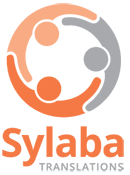Regarding visa applications in Australia, one crucial aspect that often goes unnoticed is the requirement for translation of supporting documents. The Australian government places high importance on accurate translations to ensure that visa applications are processed smoothly and efficiently. This is where NAATI, the National Accreditation Authority for Translators, and Interpreters, comes into play. We will explore what NAATI is, when it is necessary to have translations done by NAATI-certified translators, and when exceptions apply.
What is NAATI?
NAATI, the National Accreditation Authority for Translators, and Interpreters is an Australian organisation responsible for certifying translators and interpreters. NAATI certification ensures that professionals possess the necessary skills to provide accurate and reliable translation and interpretation services. It is a mark of quality and competence in the field of language translation in Australia.
When is NAATI Certification Necessary?
In the context of visa applications, NAATI certification is necessary for translations of documents that are not in English. The Australian government requires NAATI-certified translations for the following types of documents:
Identity Documents
This includes passports, birth certificates, marriage certificates, and any other personal identification documents. These documents are crucial for verifying the applicant’s identity, and their translations must be accurate.
Educational Certificates
If you are submitting academic transcripts, diplomas, or certificates to support your visa application, NAATI-certified translations are essential. These documents demonstrate your qualifications and educational background.
Employment Records
Any employment records, such as letters of employment, job references, or contracts, need to be translated by a NAATI-certified translator to confirm your work history and experience.
Legal Documents
Legal documents like police clearance certificates and court orders must be accurately translated to ensure the Australian government can assess your character and background.
Medical Records
If you are providing medical records as part of your visa application, they must be translated by a NAATI-certified translator to accurately convey your medical history and conditions.
Exceptions to NAATI Certification
While the Australian government generally requires NAATI-certified translations, there is an exception to this rule:
When you are applying for a visa while you are still overseas, a non-NAATI translation will be accepted as long as the translation includes the following translator’s details:
- Full name
- Address
- Telephone number
- Qualifications and experience in the language they are translating.
NAATI Certification for Different Visa Types in Australia
When applying for a visa in Australia, the requirement for NAATI-certified translations can vary depending on the type of visa you are applying for. NAATI certification ensures the accuracy and reliability of translations, which is crucial for visa applications. Here’s a breakdown of NAATI certification requirements for different visa types:
Skilled Migration Visas (e.g., Subclass 189, 190, 491)
- These visas are for skilled workers who want to live and work in Australia.
- NAATI-certified translations are typically required for supporting documents such as educational certificates, employment records, and identification documents.
Family Visas (e.g., Partner Visa, Parent Visa)
- Family visas are for individuals sponsored by their Australian family members.
- NAATI-certified translations may be necessary for documents like marriage certificates, birth certificates, and relationship evidence.
Student Visas (e.g., Subclass 500)
- Student visas are for international students studying in Australia.
- Educational documents, such as academic transcripts and diplomas, often need NAATI-certified translations.
Employer-Sponsored Visas (e.g., Subclass 482)
- These visas are for skilled workers sponsored by an Australian employer.
- NAATI-certified translations of relevant documents, including qualifications and work experience, may be required.
Visitor Visas (e.g., Subclass 600)
- Visitor visas are for tourists and short-term visitors to Australia.
- NAATI certification may not be mandatory for standard visitor visa applications unless requested by the immigration authorities.
Business and Investor Visas (e.g., Subclass 188, 888)
- Business and investor visas are for individuals looking to establish or manage a business in Australia.
- NAATI-certified translations of business documents and financial records may be necessary.
Refugee and Humanitarian Visas (e.g., Subclass 200, 866)
- These visas are for individuals seeking asylum and protection in Australia.
- NAATI-certified translations of personal documents, including identification and evidence of persecution, may be required.
Skilled Regional Visas (e.g., Subclass 491, 494)
- Skilled regional visas are for skilled workers willing to live and work in regional areas of Australia.
- NAATI-certified translations of qualifications and work experience documents may be necessary.
Temporary Work Visas (e.g., Subclass 457, 482)
- Temporary work visas are for skilled workers temporarily employed in Australia.
- NAATI-certified translations of employment contracts, qualifications, and other relevant documents may be required.
Other Special Visas (e.g., Student Guardian Visa, Medical Treatment Visa)
- Requirements for NAATI-certified translations may vary based on the specific visa type and circumstances.
It’s important to note that while NAATI certification is generally required for non-English documents, there may be exceptions based on bilateral agreements between Australia and certain countries. It’s advisable to check the most up-to-date requirements with the Australian Department of Home Affairs or consult with a migration agent for guidance tailored to your specific visa application. Accurate translations are essential to ensure your visa application process goes smoothly and successfully.
Understanding NAATI Certification Levels
NAATI (National Accreditation Authority for Translators and Interpreters) offers a range of certification levels to assess the competency and proficiency of translators and interpreters in Australia. Here is a comprehensive overview of NAATI certification levels and their significance:
NAATI Certification Basics
NAATI is responsible for maintaining high national standards for language practitioners in Australia.
It’s the authorised organisation to issue certification for translators and interpreters in Australia, and it also grants recognition to practitioners of rare languages.
There are various levels of NAATI certification, each reflecting a different level of competence and expertise in translation and interpretation.
Translator Certification Levels:
Advanced Translator (Senior) – Formerly Level 5:
- Represents the highest level of translator certification.
- Indicates mastery and expertise in translation, often in specialised or complex fields.
Advanced Translator – Formerly Level 4:
- Demonstrates a high level of competence in translation.
- Suitable for handling demanding translation tasks.
Certified Translator – Formerly Level 3 or Professional Translator:
- Represents a common and widely recognised level of translator certification.
- Suitable for various professional settings, including legal, medical, and social contexts.
Recognized Practising Translator – Formerly Translator Recognition – Used for dialect and language certification not offered by NAATI:
- Recognises competence in translating rare languages or dialects not covered by standard NAATI certification.
Interpreter Certification Levels:
Conference Interpreter (Senior) – Formerly Level 5:
- The highest level of interpreter certification.
- Demonstrates excellence in interpreting, especially in demanding conference settings.
Conference Interpreter – Formerly Level 4:
- Indicates a high level of interpreting expertise.
- Suitable for conference and high stakes interpreting assignments.
Certified Interpreter – Formerly Level 3 or Professional Interpreter:
- Represents a common and widely recognized level of interpreter certification.
- Suitable for various professional interpreting settings.
Certified Provisional Interpreter – Formerly Level 2 or Paraprofessional Interpreter:
- Indicates entry-level interpreter competence.
- Suited for basic interpreting tasks
Language Aide – Awarded for completing a NAATI test:
- Recognises individuals who have completed a NAATI test but may not have full interpreter certification.
Benefits of Using a NAATI Certified Translator
Using a NAATI certified translator offers a wide array of advantages when it comes to language translation and interpretation services.
- Essential for document translations required for migration, study, or work in Australia.
- Trusted by Australian universities, government bodies, and employers.
- Ensures document translations meet high-quality standards.
- Required for various personal documents, including birth certificates, marriage certificates, academic transcripts, and more.
- Non-certified translations can be checked and certified for reliability.
Using NAATI-certified translators and interpreters is essential for ensuring the accuracy and reliability of language services, especially for important documents and official purposes in Australia.
Conclusion
NAATI certification is a vital requirement for visa applications in Australia when translating non-English documents. It ensures accuracy and reliability in the translation process, which is crucial for the assessment of your visa application. However, for documents originally in English or specific cases covered by bilateral agreements, NAATI certification may not be necessary. It’s essential to always check the current requirements with the relevant immigration authorities to ensure your visa application proceeds without any hitches. Remember, when it comes to visa applications, accuracy and compliance with government regulations are key to success.
Related Posts

Get a quote today
"*" indicates required fields
Subscribe today to receive the latest insights and updates from Sylaba Translations










